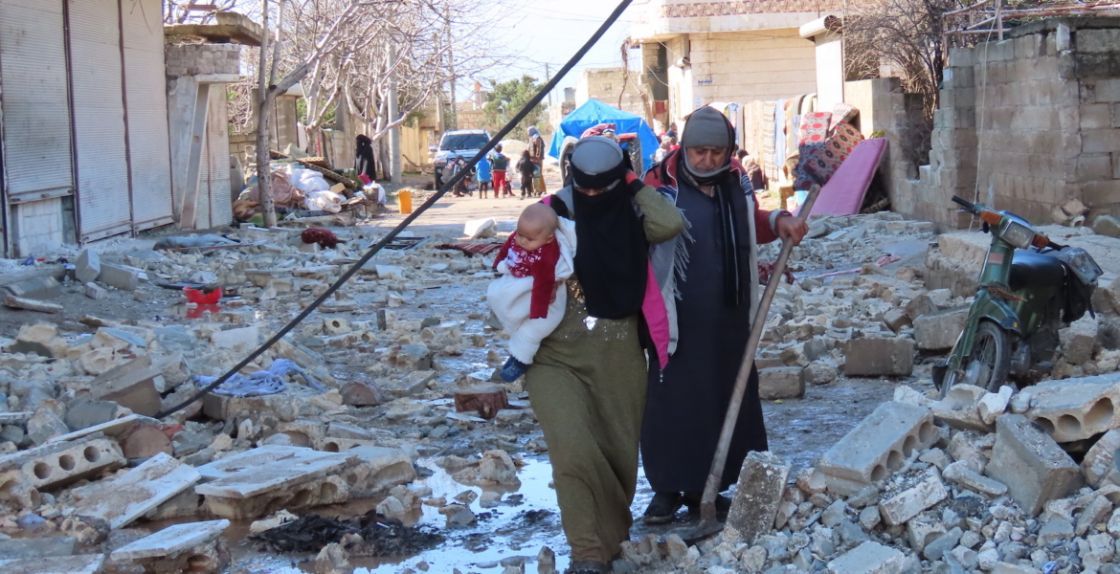- Articles
- Posted
Washington Implicitly Admits the Criminality of its Sanctions
A few hours ago – on February 9, Washington time – the US Treasury issued a decision to ease some of the restrictions imposed by US sanctions on Syria for a period of 6 months, starting from the issuance date of the decision and until August 8. The decision is titled: “Authorizing Transactions Related to Earthquake Relief Efforts in Syria”.
The decision allows the US to overlook “third party” (parties other than the US) transactions with Syria and with the Syrian government implicitly, provided that these transactions are for the purpose of dealing with the effects of the earthquake. Verifying the latter means that “third parties” still need to go back to Washington for approvals.
It is not yet clear the extent of the actual impact this decision could have in mitigating the impact of the sanctions, and in facilitating humanitarian efforts related to the effects of the earthquake, especially since the decision considers that fuel and oil are not included.
What is undoubtedly clear is:
First: This decision is a clear admission by the US that its sanctions impede humanitarian efforts to deal with the effects of the earthquake.
Second: While the earthquake was the latest catastrophe that befell Syrians, their other disasters were and are still continuing, and over the past years they have been in need of all kinds of humanitarian aid, in large quantities and various types, in the camps, in the countryside, in major cities, and in every part of Syria. While US sanctions impede dealing with the effects of the earthquake (by the Americans’ own admission), then they undoubtedly impede dealing with all the disasters that Syrians have been living through for more than ten years, deepen these disasters and make them heavier, not to mention that sanctions are the cause of some of these disasters.
Again, although one cannot trust that the US has any real desire to alleviate the suffering of Syrians through this decision, what is good about it is that it is the first clear official admission that the sanctions harm all Syrians and make their already difficult lives more difficult.
Additionally, this decision constitutes a direct blow to the insolence of some Syrians who are subservient to America, and who have worked hard to defend the US, its sanctions, and its “humaneness”, even when people were under the rubble.
The US State Department Bureau of Near Eastern Affairs, which is headed by Barbara Leaf, posted on February 8, one day before the Treasury Department’s decision, a thread on its Twitter account, which can be summarized by the following: US sanctions do not impede humanitarian aid efforts in any way. It is not surprising that Barbara’s “parrots” repeat her words and pretexts. Now, those same “parrots” will be in a humiliating situation, as they will have two contradictory things, both of which they must justify.
Once again, although helping afflicted Syrians should be of the utmost priority, and it would be very good if this decision contributed to alleviating their suffering, this is not confirmed by virtue of Syrians’ experience – and the experience of the peoples of the world in general – with the extent of Washington’s “humaneness”. Therefore, when pondering the objective of those who issued the decision, the thinking should go in one of two directions or both:
- There is extreme embarrassment for the US in the international sense, because everyone knows that Washington’s sanctions are means of killing and genocide, especially in the current circumstances. Issuing such a decision may be due to direct pressure from certain countries, most likely including Arab countries.
- The second line of thought is that the decision has nothing to do with the catastrophe, but rather exploits it to take an additional step within the “step for step” plan that aims to circumvent the political solution and UNSC Resolution 2254, and towards keeping the de facto division, and within the framework of sneaking around to work against the Syrian-Turkish settlement and against Astana’s recent efforts.




 Saad Saeb
Saad Saeb